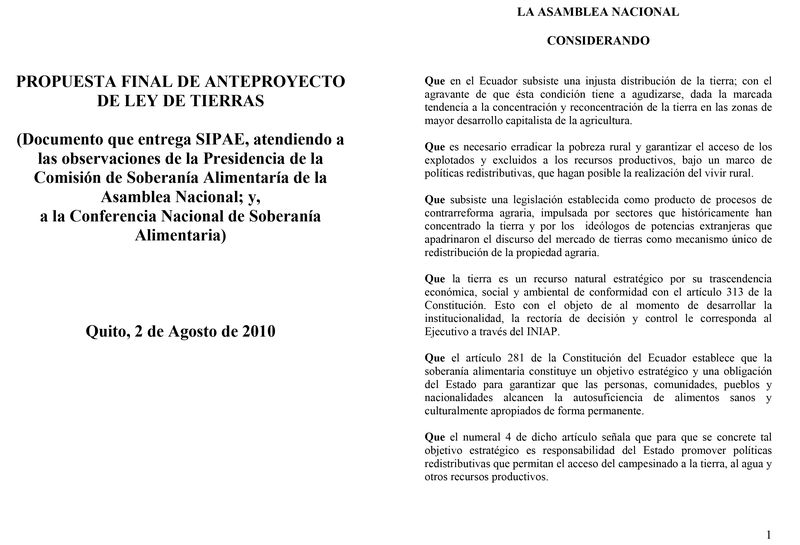La legislación peruana y los derechos de pequeños agricultores y comunidades a la propiedad de las tierras - Laureano del Castillo. CEPES. (octubre 2014)
Se presenta el estado actual de la legislación peruana sobre las tierras agrícolas y las posibilidades de que los pequeños productores, individuales y colectivos accedan a la tierra. La legislación peruana es resultado de las profundas modificaciones en los marcos institucionales y políticos vividos en las últimas décadas y por ello, se aparta de los lineamientos de los paises vecinos.







